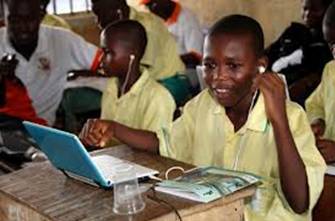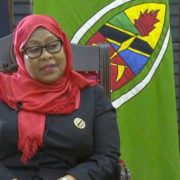The Nigerian Communications Commission (NCC) has launched a campaign to keep children safe online and assist parents ensure their young ones navigate the Internet without becoming preys of cyber criminals.
The telecom regulator, in partnership with Cece Yara Foundation, this week unveiled series of messages and steps as part of broad safety measures and guidelines to help parents protect their children while on the web.
Global authorities have noted a spike in the cases of digital crimes targeting children with countries like children recording rising cases as more people including children readily gain internet access.
NCC’s campaign plugs into the recent unveiling of the of Europol COVID-19 Global Online Safety Advice and that of the the ITU designed to keep children safe online during the COVID-19 pandemic for parents and care givers.
The NCC’s campaign is also fostered around helping parents, child minders and guardians keep young people safe online during and beyond the COVID-19 pandemic.
“Online safety is not the non-existence of harm or risk, rather it is creating the atmosphere or opportunity to overcome the risks while enjoying the inherent benefits of using the internet.
“Computers are usually in a place child perceive as safe; the risks are not readily apparent to them. They do not understand that the computer can be networked and connected beyond the safe place to a world that can be both risky and dangerous.
“Educating children about cyber safety is complicated, as young children often do not understand the social & technical complexities of the internet. The internet is virtual & cannot be experienced firsthand by the sense” notes the NCC in series of post kickstarting its awareness campaign on online safety.
Part of the broad safety measures include the steps below.
How to keep them safe Online
The Commission urged parents and care givers to anticipate risks as anticipation of risks would lead to appropriate control measures being put in place before a child is allowed access to digital devices or the internet. Some of these anticipatory control measures include:
Need for Parental guidance
As a parent, stay informed and educated about the use of your devices and the devices your child has access to.
Parents must stay ahead, informed
Parents should stay informed on various social network sites and what happens on them. Stay informed and better educated than your children and wards. Make them understand that you know as much or more than they do. Therefore, be their go-to person for information on what to do with the device you eventually give them access to.
What care must they give
Care Givers should be trained on how to guide children in online activities: Schools have adopted the use of online platforms for education. Care must be taken to educate the teachers and prepare them for the avalanche of questions from children, on the use of various online applications or whatever information the children encounter online.
Teachers as major support
The teachers are major support networks and pillars in the life of any child. They are oftentimes as trusted as parents are.
Installation of apps
Install child appropriate apps/search engines: Before a device is given to a child, age appropriate applications should first be installed on it. This will protect the child from inadvertently stumbling into wrong sites that appear as pop-ups.
Install firewalls
Firewalls act as content filters. They help make sure non-age appropriate content does not appear on the child’s device.
Timers be installed
Set timers on all devices used by the child: This helps to create discipline and structure for the child. Ensure clear time boundaries are set.
Empower the child
This is one of the most important steps any parent can take. There is a sense of privacy associated with being online. Parents will not always be there when children go online. Adopting a child-centric approach to the use of the internet prepares the child for unforeseen issues and assures the child of the trust and respect of his/her parent.
Basic rules
Teach children basic online safety skills and how to apply them. Pay attention/be observant: As children spend more time online, observe behavioral patterns and changes.
Recognise unusual activities, actions and reactions. Where any change is observed, calmly address those changes and allow the child sufficient room to talk without being judgmental. The home is a safety net for children. It is also the best support system that allows an abused child recover from abuse and provides a means for managing post abuse trauma. Children need to know they can go to their parents with whatever concerns they encounter online.
Engage your child
Ask how your children use the internet. Make them show you some of their favorite sites and discuss with them, make them aware that there are things on the internet which may upset them and that they can always talk to you or any trusted adult. Make sure your child realizes that he or she should never give out personal details, such as name, address, school, and telephone numbers, to online friends they do not know in the real world.
Junk mails
Tell the child to never respond to junk emails or open attachments that are from unknown sources. Be aware of any changes in the way a child uses the internet, such as the amount of time spent online. Also support your child to report bullying online, by contacting you immediately it occurs.































